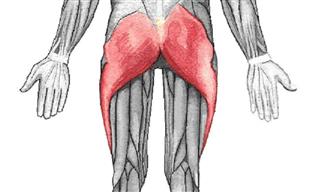Do you love pickles? Now you have all the more reason to eat them! The fermentation of foods has been used by man since the dawn of mankind, but only in modern times have we begun to discover the surprising health benefits of its use. In this method, foods are fermented by bacteria that multiply without the presence of oxygen (anaerobic bacteria) in an acidic environment, with low pH, where harmful bacteria and parasites, which are the main causes of food deterioration, can’t develop.
In addition, when fermented foods are prepared at home it is not an industrial process, so they maintain most of their nutritional value when compared to store-bought canned foods, making the benefits more plentiful. Here is a list of 7 health benefits of fermented foods and at the end of the list you’ll also find 2 recipes for making healthy and delicious fermented foods.
What is fermented food?
Fermented food is a food in which bacterial activity produces biochemical changes caused by the effect of lactic acid bacteria, which in their final decomposition produce lactic acid. You can ferment almost any food - animal products, grains and vegetables - and the fermentation process is very simple. The time taken for acidity to fall below 4 (this is the desired pH), and the amount of lactic acid to reach its peak in food is usually only 48 hours.
7 Health Benefits of Fermented Foods
1. Prevents various bowel disorders
For those suffering from lactose intolerance, gluten intolerance, irritable bowel syndrome, Crohn's disease, celiac, chronic gases or constipation, fermented foods can only do you good! They balance the pH of the intestines, rehabilitate the community of friendly bacteria, and provide enzymes that help us digest foods, such as lactase which is needed for digestion of dairy products.

2. Prevents depression and anxiety
A 2014 study at Harvard Medical School found that there was a direct correlation between fermented food consumption and mental health improvement, especially in cases of anxiety or depression. "There is a positive correlation between the quality of the intestinal microbial community and our mental state, and the healthier our microbiota, the easier it is for the brain to regulate emotions with hormones coming from the digestive system.
3. Repels Pathogenic bacteria
The digestive acids produced in the fermentation process help reduce the pH of the intestines, creating a hostile environment for pathogenic bacteria - the bacteria that cause intestinal diseases such as Salmonella, E. coli, and Shigella. As evidence, a study conducted at the University of Zimbabwe Medical Technology Laboratory found that harmful bacteria of these and other species did not survive well after 24 hours of exposure to fermented food, as opposed to bacteria exposed to the same food in a non-fermented version.

4. Strengthens the immune system
In addition to the previous benefit, lactic acid bacteria help us to deal with these harmful bacteria by helping the immune system. The good bacteria identify the foreign and harmful substances in the digestive system and alert the immune system to them. They stimulate mucus secretions in the intestines, increase antibody activity, help white blood cells fight infections, and even actively suppress cancer cells and tumors. This advantage was noted in a review of studies conducted in 2006, in which the researchers also believed that friendly bacteria help avoid allergic reactions of the body.
5. Keeps your teeth healthy
Researchers from the University of Catalonia in Spain have found seven different types of lactic acid bacteria that are beneficial for maintaining oral health. Problems associated with oral cavities such as cavities, inflammation, gum problems, and bad breath are caused by the spread of harmful bacteria in our mouths. By eating fermented foods rich in lactic acid bacteria and other beneficial bacteria, we maintain the mouth and create a healthy, balanced oral environment.

6. Improves metabolic rate
Probiotics in general and fermented foods in particular help to improve metabolic rate by strengthening the community of good bacteria in the intestines. This effect was confirmed in a study conducted at the University of Hohenheim, Germany, in which the effect of bacteria found in fermented foods on the metabolic rate was examined and found to be positive.
7. Helps the body absorb minerals
In non-fermented foods like fish, nuts, and seeds, there are substances that bind to minerals and inhibit their mineral absorption in our body, therefore, when we add them to a salad or dish, we absorb less iron, zinc, manganese, and calcium. However, when added to fermented foods this effect is eliminated by the enzymes in the fermented food, which allows the body to absorb minerals from the food with greater efficiency. Therefore it is recommended to eat fermented foods along with main dishes of fish or together with nuts and seeds.
2 recipes for fermented and pickled foods
Now that you know the great benefits of fermented foods, we invite you to learn two new fermented food recipes that are easy to make at home!
Pickled Cucumbers Recipe
Pickled cucumbers, commonly known as pickles, are the most popular fermented food, and although they lose some of their health benefits during fermentation, such as their water-soluble vitamins, they take on the benefits of fermented foods. It is therefore recommended to eat pickles together with cucumbers in their natural form.

Ingredients:
- 2 lbs. cucumber (sliced in medium-thin thickness)
- 1-quart water (filtered)
- ½ cup white or apple cider vinegar
- 1 tbsp. salt
- 3-5 cloves of garlic (peeled)
- 3-5 Bay leaves (optional)
Preparation:
1. Place garlic and bay leaves in a clean, dry jar.
2. Place the cucumbers in the jar over the garlic.
3. Mix vinegar, salt, and a quarter of the water together in a bowl and pour into the jar.
4. Mix well and add water till a little before the top of the jar and close the lid well.
5. Place on the counter for at least 48 hours, and when the cucumbers are properly pickled, place the jar in the refrigerator.
Pickled Carrot Recipe
Pickled carrots can be eaten as a wonderful healthy snack between meals or as an addition to a meal. It will help you achieve all the benefits associated with fermented foods, such as improved digestion and metabolism, along with more efficient mineral absorption and protection from harmful intestinal bacteria.
 Ingredients:
Ingredients:
- 2 lbs. carrots (peeled and sliced into 3-inch strips)
- 3 cups of filtered water
- 2 tsp. salt
- 3 cloves of garlic (finely chopped)
Preparation:
1. Dissolve the salt in the filtered water
2. Wash the carrots well and place them in a jar with the finely chopped garlic.
3. Ladle the salt water into the jar until it reaches the top, close the lid and leave on your counter for 48 hours at least.
4. Then place in your refrigerator door to continue the slow fermentation process, during which you can eat the carrots.
 Go to BabaMail
Go to BabaMail






























